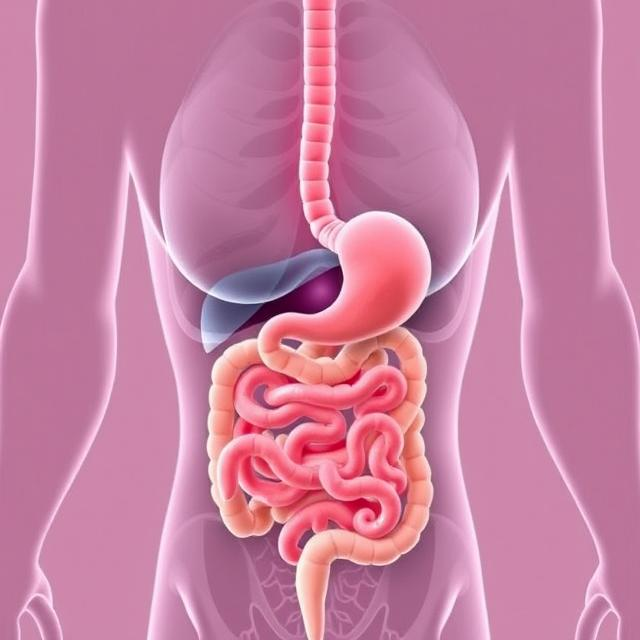The Importance of Gut Health: How a Healthy Gut Impacts Your Whole Body

Your gut is more than just where food is digested—it’s often referred to as the “second brain” of the body. A healthy gut doesn’t just aid in digestion; it plays a key role in your immune function, mood, energy levels, and even skin health.
In this post, we’ll explore why gut health matters, signs your gut may be out of balance, and simple, natural ways to support your digestive system.
Why Gut Health Is So Important
Your gut is home to trillions of bacteria, fungi, and other microorganisms. This community is called the gut microbiome, and it helps:
- Break down and absorb nutrients
- Support immune function
- Regulate hormones
- Influence brain health and mood through the gut-brain axis
- Reduce inflammation throughout the body
When your gut is balanced, you feel energized, focused, and resilient. When it’s out of balance, it can lead to fatigue, brain fog, bloating, food sensitivities, and even mental health issues.
Signs of Poor Gut Health
You might not always feel stomach pain to know your gut is struggling. Some common signs include:
- Frequent bloating, gas, or indigestion
- Irregular bowel movements (constipation or diarrhea)
- Fatigue or low energy
- Sugar cravings
- Trouble concentrating or brain fog
- Poor immune function (getting sick often)
- Mood swings, anxiety, or depression
- Skin issues like acne, eczema, or rosacea
1. Eat More Fiber-Rich Foods
Fiber feeds the good bacteria in your gut and helps keep your digestive system moving. Most people don’t get enough fiber daily.
Great sources of fiber include:
- Fruits (berries, apples, bananas)
- Vegetables (broccoli, leafy greens, carrots)
- Legumes (lentils, chickpeas, black beans)
- Whole grains (oats, brown rice, quinoa)
Tip: Add fiber slowly to avoid bloating, and drink plenty of water alongside it.
2. Include Fermented Foods in Your Diet
Fermented foods naturally contain probiotics, which are live bacteria that support your gut microbiome.
Best fermented foods for gut health:
- Yogurt (look for “live & active cultures”)
- Kefir
- Sauerkraut
- Kimchi
- Miso
- Tempeh
- Kombucha (watch for added sugars)
Try to include a small portion of fermented foods daily.
3. Reduce Added Sugars and Processed Foods
A diet high in sugar and processed ingredients can feed harmful gut bacteria and increase inflammation.
Tips to reduce sugar intake:
- Swap soda for herbal tea or infused water
- Choose fresh fruit over candy or pastries
- Read labels and avoid hidden sugars in sauces and snacks
A low-sugar, whole-food diet supports a balanced gut microbiome.
4. Stay Hydrated
Water helps with nutrient absorption and regular bowel movements. Dehydration can lead to constipation and slow digestion.
Aim for:
- About 8 cups (2 liters) of water daily
- Herbal teas or broths as hydrating alternatives
5. Manage Stress Effectively
Chronic stress disrupts digestion and the balance of bacteria in your gut. The gut and brain are connected through the gut-brain axis, so when you feel anxious, your stomach feels it too.
Natural stress management tips:
- Deep breathing or meditation
- Gentle movement (yoga, walking)
- Journaling
- Spending time outdoors
- Getting enough sleep
Reducing stress helps restore gut health—and overall well-being.
6. Get Enough Sleep
Poor sleep can harm your gut, and an unhealthy gut can make it harder to sleep. It’s a two-way street.
Sleep tips for gut health:
- Keep a consistent sleep schedule
- Limit screens and caffeine before bed
- Create a relaxing evening routine
Aim for 7–9 hours of quality sleep each night.
7. Consider Probiotics and Prebiotics
- Probiotics add good bacteria to your gut (can be found in food or supplements).
- Prebiotics feed the good bacteria and are found in fiber-rich foods.
If you’re taking antibiotics or dealing with gut issues, a high-quality probiotic supplement may be helpful—just talk to a healthcare provider first.
Final Thoughts: A Healthy Gut = A Healthier You
Taking care of your gut can lead to more energy, better digestion, improved mood, and stronger immunity. It’s not about perfection—it’s about consistently choosing habits that support your body’s natural systems.
Your gut is always communicating with the rest of your body. When it feels good, you do too.



